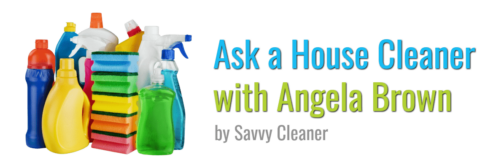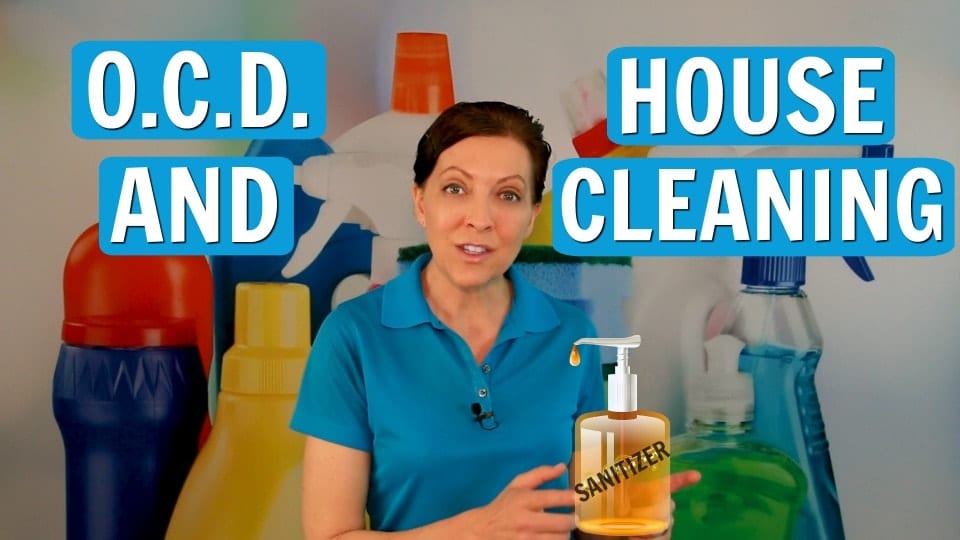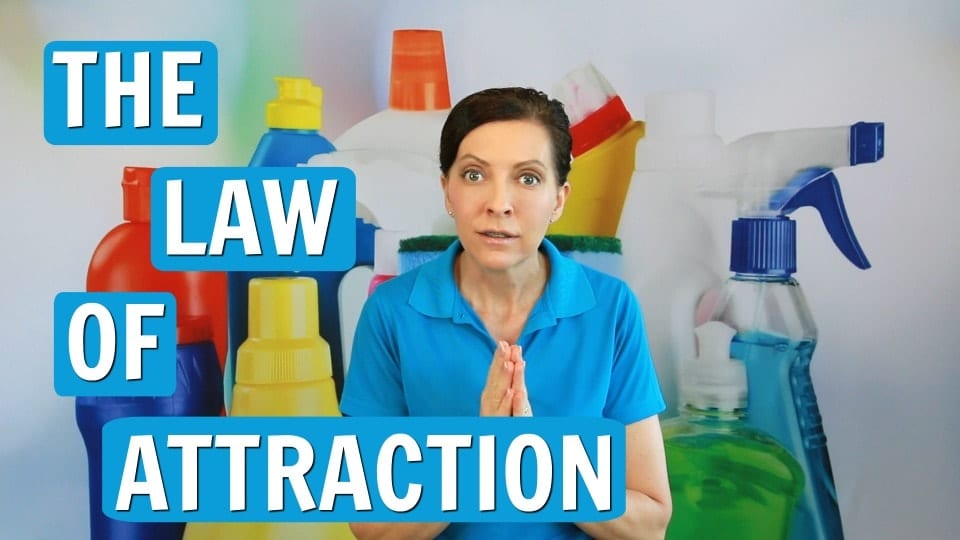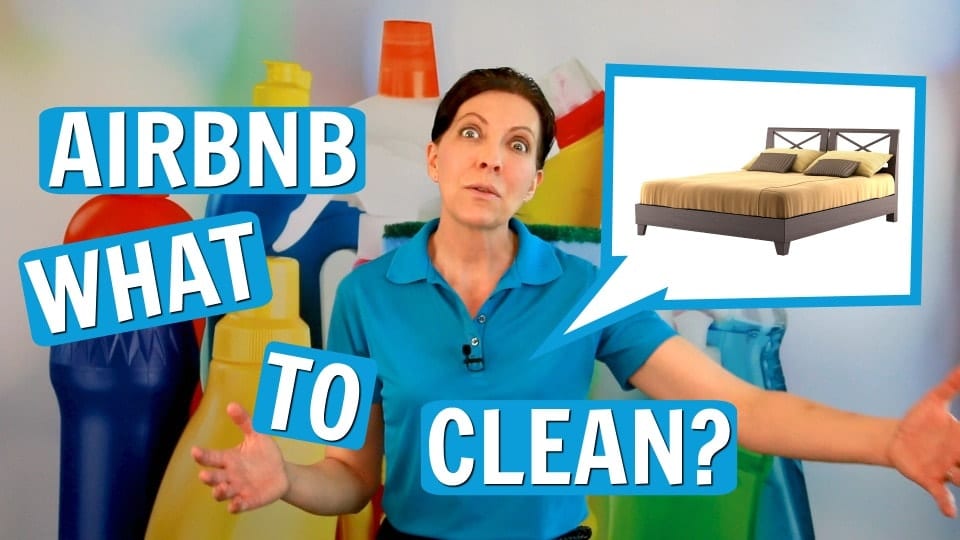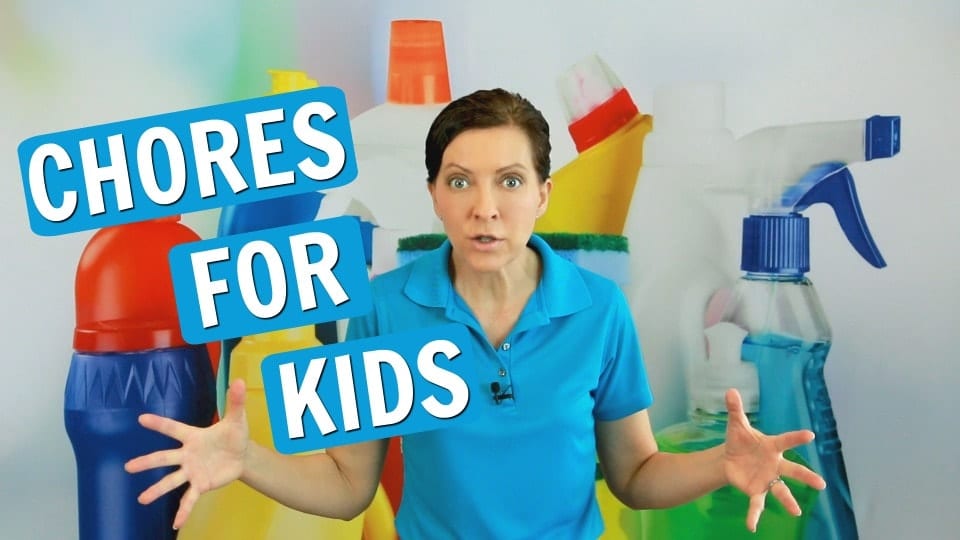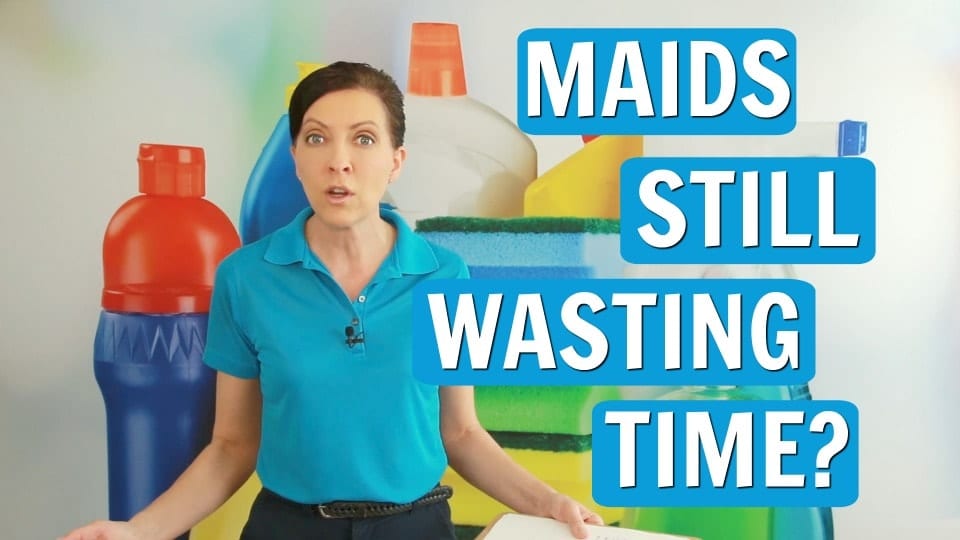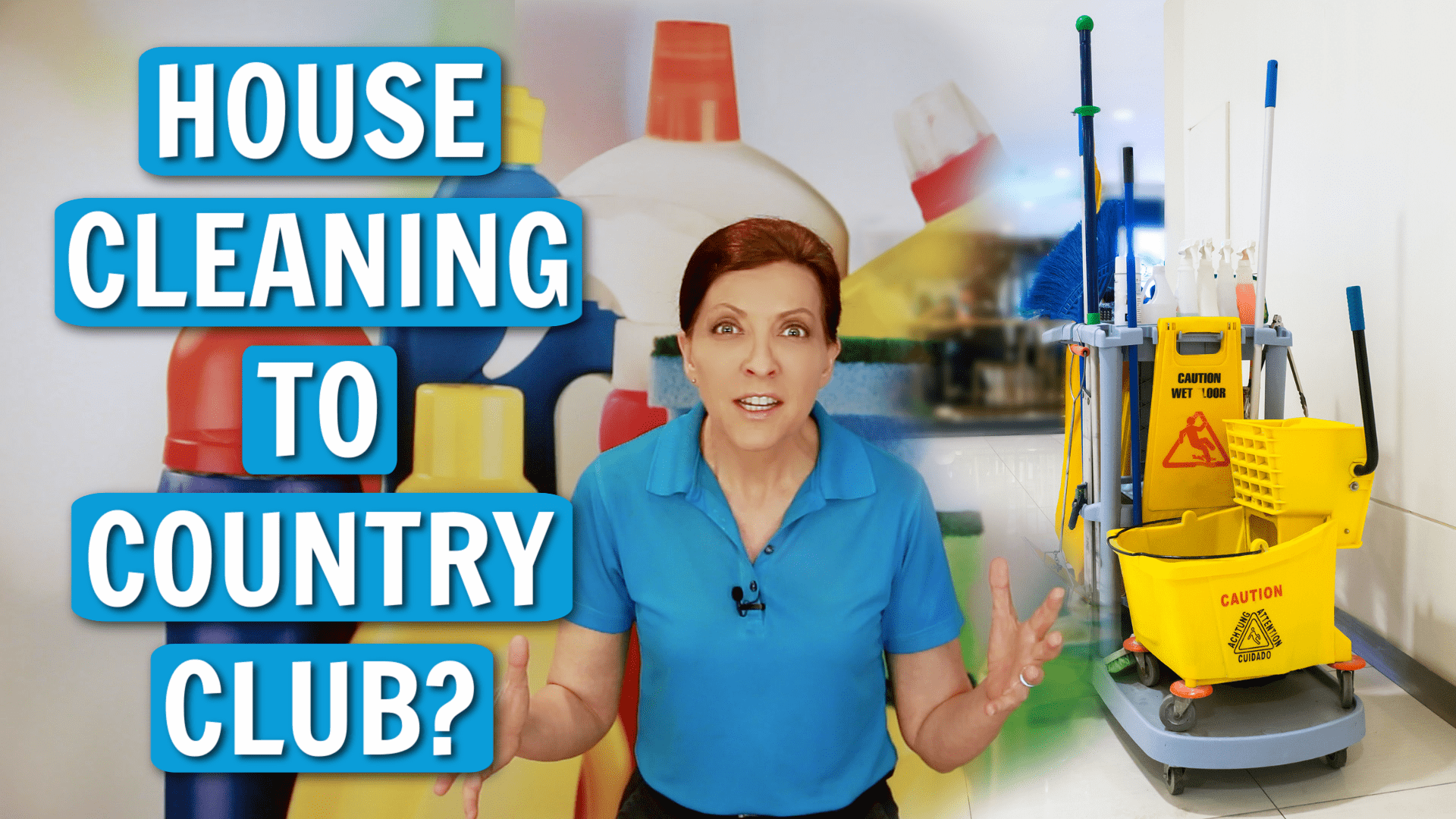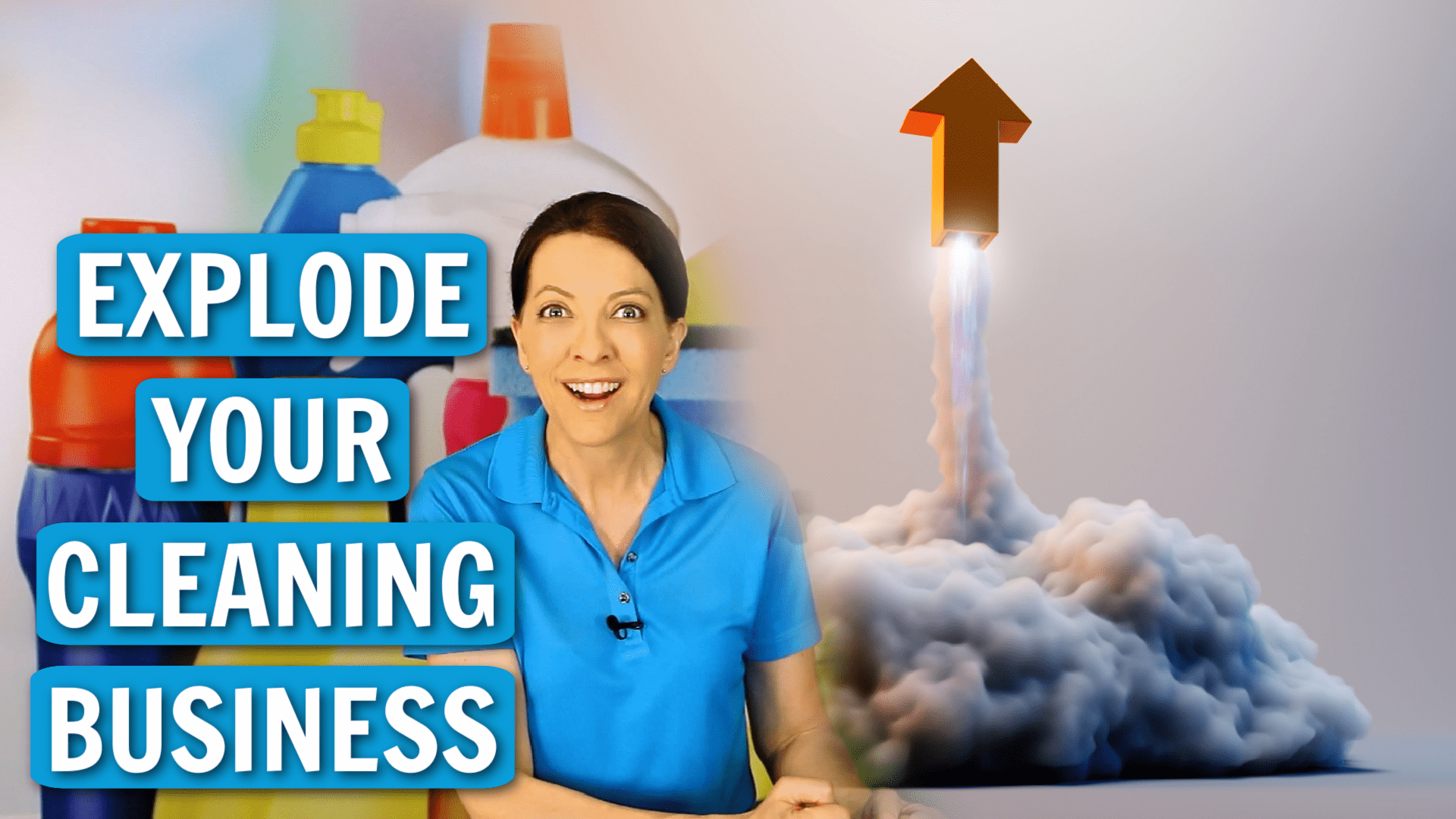[vc_row][vc_column width=”2/3″][vc_column_text]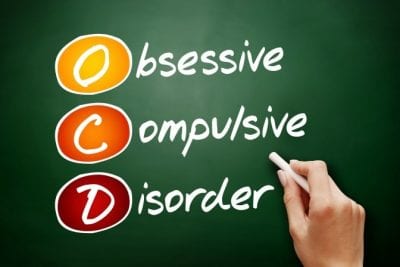 Obsessive-Compulsive Cleaners are among us. They clean our homes with OCD counting rituals and approval addiction. But are obsessive-compulsive cleaners able to do the same job as regular maids?
Obsessive-Compulsive Cleaners are among us. They clean our homes with OCD counting rituals and approval addiction. But are obsessive-compulsive cleaners able to do the same job as regular maids?
On this cleaning channel, we Ask a House Cleaner about obsessive-compulsive cleaners. Angela Brown, The House Cleaning Guru gives expert cleaning tips for OCD housekeepers. Your worksheets allow you to keep your counting in check. And inspecting your work as you go keeps you on task.
Also recommended for obsessive-compulsive disorder symptoms is CBT. (Cognitive Behavioral Therapy)
Today’s sponsors are Savvy Cleaner (House cleaner training and certification.) Savvy Perks (Employee benefits for small business owners.) My Cleaning Connection (a hub for cleaning resources.) And HouseCleaning360 (a referral hub connecting home service providers with homeowners.)
Listen: Obsessive-Compulsive Cleaners & How to Cope with OCD
Watch: Obsessive-Compulsive Cleaners & How to Cope with OCD
Hey there, I’m Angela Brown, and this is Ask a House Cleaner. This is a show where you get to ask a house cleaning question, and I get to help you find an answer.

Question: Obsessive-Compulsive Cleaners & How to Cope with OCD
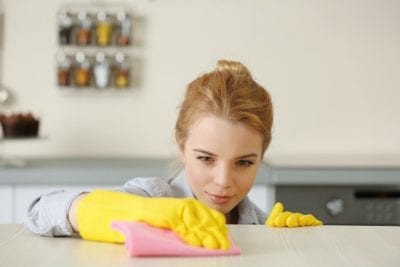 Obsessive-compulsive cleaners. If you’re an obsessive-compulsive cleaner, this is for you.
Obsessive-compulsive cleaners. If you’re an obsessive-compulsive cleaner, this is for you.
Now, we have a house cleaner that wrote into the show and she says, “Ange, I’ve got OCD really bad. And I keep cleaning even after the surface is clean. And I’m wasting a lot of my company’s time. How do I stop?”

What are the Symptoms of Obsessive-Compulsive-Disorder?
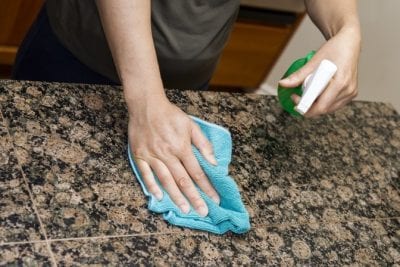 All right, that’s an excellent question. First, we have to recognize the behaviors of OCD. Some of the symptoms are going to show up in your cleaning. Now, one of the things about people who have OCD, a lot of times is they’re germophobic.
All right, that’s an excellent question. First, we have to recognize the behaviors of OCD. Some of the symptoms are going to show up in your cleaning. Now, one of the things about people who have OCD, a lot of times is they’re germophobic.
As house cleaners, we become germophobic because we are around so many germs. But just because you’re aware of germs doesn’t make you OCD.
Constant Hand Washing is a sign of Obsessive-Compulsive Cleaning
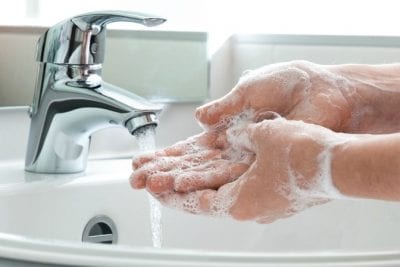 But be aware of the behaviors. If you’re constantly using hand sanitizer or washing your hands, it could be leading you down the path to becoming OCD.
But be aware of the behaviors. If you’re constantly using hand sanitizer or washing your hands, it could be leading you down the path to becoming OCD.
All right, so we want to wear gloves when we clean that just protects our hands from those germs.
- Wear Gloves to Protect Your Hands and Stop Washing Them
If you have gloves on your hands, that’s going to prevent you from keep washing your hands over, and over, again.
Constant Cleaning is a Sign of Obsessive-Compulsive Behavior
 Now, when you’re cleaning, there’s a tendency to keep cleaning. Even after the surface, you’ve been cleaning is clean. Going over it dozens of times while counting doesn’t make the surface any cleaner.
Now, when you’re cleaning, there’s a tendency to keep cleaning. Even after the surface, you’ve been cleaning is clean. Going over it dozens of times while counting doesn’t make the surface any cleaner.
As house cleaners, we carry a pocket flashlight. And once the surface is clean, we inspect it and move on. Our eyes give us permission that the surface is clean. Not a specific number of swipes.
Counting is Another sign of Obsessive-Compulsive Rituals
 Another one of the symptoms of people with OCD is counting repetitions.
Another one of the symptoms of people with OCD is counting repetitions.
Let’s say that you’re cleaning a countertop and you count how many swipes it takes for you to clean that countertop. That’s okay, as long as you change the count per the size of the countertop.
If you’re cleaning a house and it’s a first-time clean, you might realize that to clean this whole countertop, it takes me 11 sweeps. One, two, three, four, five, six, seven, all the way down through and around the edge of the counter. At the end of the 11 sweeps, you’re done cleaning the counter.
Don’t go to 300 or anything. 11 will do it. On the next counter, it might only be nine. Lots of people with OCD will use numbers for superstitious reasons. Well, the superstition in cleaning is that if you take too long while cleaning, you will get fired.
Use Your Worksheets to Give You Permission to Move On

If you’re a counter, write the numbers of repetitions you’ll need to get a surface clean on your worksheet.
The counter is 11 sweeps, Mopping the floor is 127. The Bathroom counter is 8. You get my point.
Once the number of swipes is complete, pull out your flashlight. Inspect your work, mark your checklist off and move along.
The inspection gives you permission to go to the next part of the house.
Seeking Approval from Others is an Obsessive Compulsive Hinderance
 Lots of people with OCD are people pleasers. And house cleaners with OCD will keep cleaning, second-guessing their work. They want it to be perfect for the homeowner.
Lots of people with OCD are people pleasers. And house cleaners with OCD will keep cleaning, second-guessing their work. They want it to be perfect for the homeowner.
And they need constant kudos from the homeowner that they are doing a good job.
The problem is that most homeowners are not at home when the house cleaner is there. So, receiving that approval is difficult at best.
The worksheets complete then become your seal of approval. And you will leave it with the customer so they can see what you’ve done and they will be proud of you. (It also justifies the price you charge and lets them know which items in the house were clean in case they have to call you back to re-clean something.)
Fear is Common Symptom of Obsessive Compulsive Replays
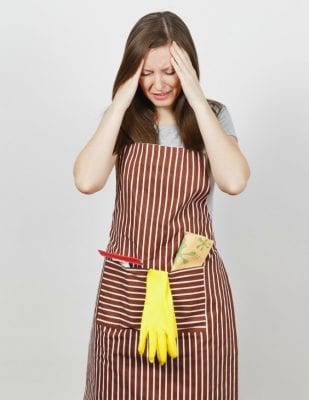 Because you are a people pleaser and you want to do your best, fearing that you’re not doing it is common.
Because you are a people pleaser and you want to do your best, fearing that you’re not doing it is common.
And the curse of house cleaners and maids is that while you’re cleaning, you have all these fearful thoughts playing in your head.
Like a broken record, you replay conversations that didn’t go right. And you think about what you could have said instead.
You jump ahead and play with conversations that didn’t happen. And you put words in your client’s mouths. You guess how they will react to your cleaning, items you broke, you being late and more.
Those thoughts rummaging around in your head aren’t real. They never happen.
- Create empowering mantras you can use to break your broken records of fear.
The Worst-Case Scenario is Common for Obsessive Compulsive Sufferers
 There’s a lot of fear in OCD, fear that we’re not good enough. We keep, as we are looking for approval from other people, what happens is we go to the worst-case scenario. The worst-case scenario is, oh no, what if this customer isn’t happy with my work and they fire me?
There’s a lot of fear in OCD, fear that we’re not good enough. We keep, as we are looking for approval from other people, what happens is we go to the worst-case scenario. The worst-case scenario is, oh no, what if this customer isn’t happy with my work and they fire me?
You start thinking through all these horrible, horrific scenarios about that. “Then I won’t have enough food for my family. And I won’t have money to pay my bills. And if I get fired, it’s because this customer doesn’t like me. That means that no customers will like me. We’ll starve and die homeless and desolate.”
And you go to this worst-possible-case scenario which is not healthy and it’s not real. Because right now you have the job. The customer did not fire you yet. And with OCD you have all these thoughts that keep playing through your head and it’s a broken tape of negativity.
Cognitive Behavioral Therapy for Obsessive-Compulsive Disorder
 With the CBT, (which is the cognitive behavioral therapy,) there are counselors. And they can sit down with you, and help you work through these different behaviors. Their job is to help you find coping skills as you break the patterns that don’t serve you.
With the CBT, (which is the cognitive behavioral therapy,) there are counselors. And they can sit down with you, and help you work through these different behaviors. Their job is to help you find coping skills as you break the patterns that don’t serve you.
Right now, you have a job and you have a particular set of skills. And while those skills may get in the way, they also make you excellent at cleaning. Paying attention to the small details is one of your superpowers.
If you hone those skills and make them work for you, you can be one of the best in your field.
But if you over clean, and you marry your lengthy superstitious routines, it will be the kiss of death to you.
That wastes lots of company time and resources – as well as those of the homeowner.
Cognitive Behavioral Therapists Can Help You
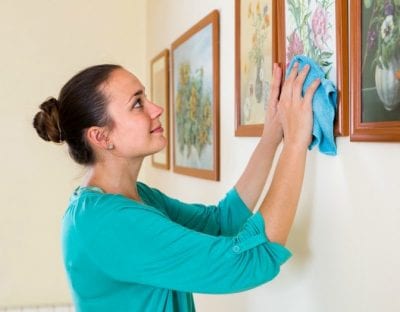 Beyond new coping skills, breaking old habits and replacing them with more effective rituals, you’ll leap ahead.
Beyond new coping skills, breaking old habits and replacing them with more effective rituals, you’ll leap ahead.
And if your situation is severe or debilitating a good cognitive behavioral therapist may recommend medicine that will allow you to live a full life. There are varying levels of OCD, but for the most part you can thrive with a new set of coping skills.
I know lots of house cleaners with OCD and they run celebrated businesses by managing their routines.
If you have obsessive-compulsive-disorder let it work for you, not against you.
 Disclosure
Disclosure
During the shows we recommend services, sites, and products to help you improve your cleaning and grow your cleaning business. We have partnerships with these companies to provide you with discounts, and savings. By clicking on and buying from the links in the show notes, we may receive a commission which helps pay for the production costs of the show.
Support the show so we can continue to bring you free tips to improve your cleaning and help you grow your cleaning business. THANK YOU!
About the Show
Learn how the show came to be, interesting facts about the show host, and other frequently asked questions about the show.
Resources For This Episode
Retrain Your Brain: Cognitive Behavioral Therapy in 7 Weeks: A Workbook for Managing Depression and Anxiety – https://amzn.to/2HL4YeU
Cognitive Behavioral Therapy Made Simple: 10 Strategies for Managing Anxiety, Depression, Anger, Panic, and Worry – https://amzn.to/2KrBXGS
Obsessive-Compulsive Disorder: Etiology, Phenomenology, and Treatment – https://amzn.to/2JDQEFs
Brain Lock: Free Yourself from Obsessive-Compulsive Behavior – https://amzn.to/2HHBgaB
Stop Anxiety from Stopping You: The Breakthrough Program For Conquering Panic and Social Anxiety – https://amzn.to/2w0DrEO
We are a participant in the Amazon Services LLC Associates Program, an affiliate advertising program designed to provide a means for us to earn fees by linking to Amazon.com and affiliated sites.
Permissions To Share
You Have Our Permission To Share This Episode
Show Sponsor
Savvy Cleaner Training – House Cleaner Training and Certification
HouseCleaning360 – Referral database of the world’s most prominent home service providers and the homeowners they serve.
My Cleaning Connection – Your hub for all things cleaning.[/vc_column_text][/vc_column][vc_column width=”1/3″][vc_row_inner][vc_column_inner][product_category per_page=”24″ columns=”1″ orderby=”rand” order=”” category=”ocd-cbt”][/vc_column_inner][/vc_row_inner][/vc_column][/vc_row]
